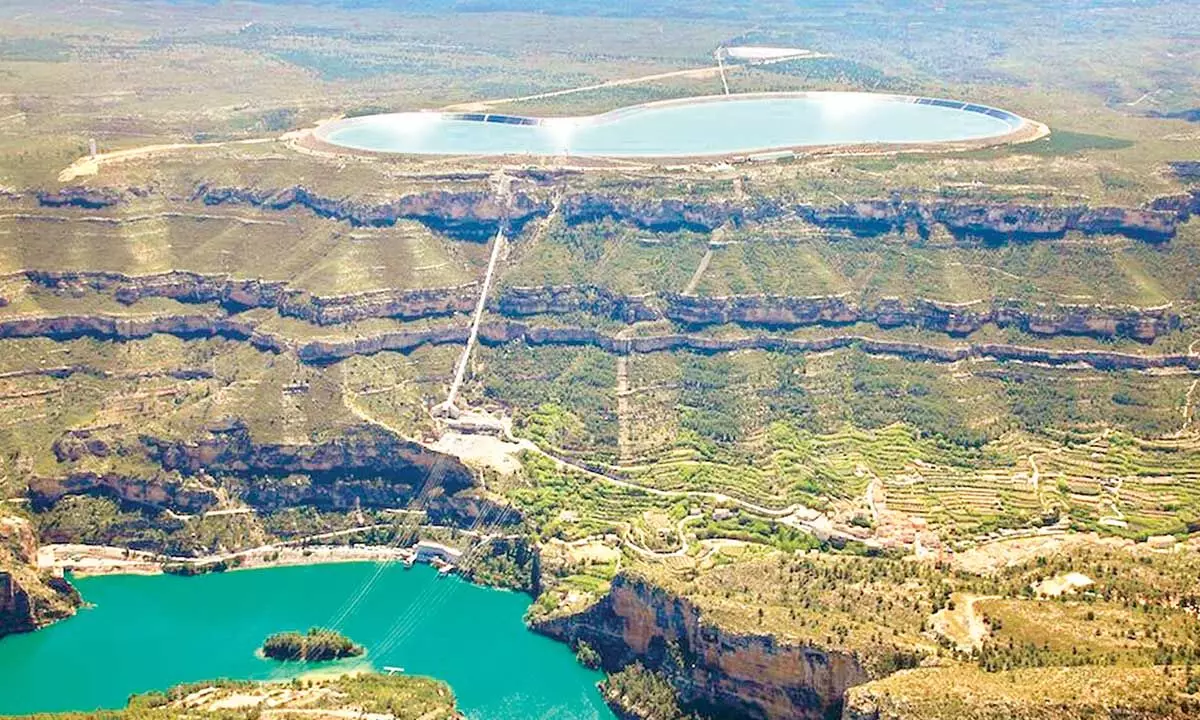Pumped hydro storage project in Manyam opposed
Local tribals have a stake in natural resources which cannot be handed over to any private agency, says former IAS officer EAS Sarma
image for illustrative purpose

If at all a pumped storage project were to be set up in the State, subject to compliance with the statutory requirements applicable to the scheduled areas, APGENCO is a far more competent agency that could be entrusted with that responsibility
Visakhapatnam: Noted social activist and former IAS officer EAS Sarma has strongly opposed the decision to take up a green energy project near Parvathipuram in Manyam district saying this will go against the interest of the tribals.
He told Bizz Buzz that the areas affected are tribal villages and some are in the scheduled areas. In both these, the Forest Rights Act is applicable. In the scheduled villages, FRA and PESA (Panchayat Extension to Scheduled areas Act) are both applicable. In all these villages, the gram sabhas ought to have been consulted, he contended.
He stated, "I understand that the AP Cabinet has just decided to permit the Adani Group to set up two large (1,000-1,300MW) pumped hydro storage projects in Parvathipuram Manyam district, in addition to one such project in Sri Sathya Sai District. It appears that each of these projects will require thousands of acres of land, which the Adani Group would apparently take on lease."
In a representation to AP Chief Secretary Sameer Sharma, the retired official stated: "If either the project site or the affected areas fall within any area notified under the Fifth Schedule to the Constitution, certain stringent requirements should have been fulfilled prior to taking such a unilateral decision."
He pointed out that no project in the scheduled areas can even be conceived without the prior consent of the local tribal gram sabhas in accordance with the PESA and the FRA. No land can be leased out to a private company, as such a transaction is prohibited by the AP land transfer regulation. This position had been reiterated by the Supreme Court in the well known Samata case in which the apex court had directed the State not to allow private agencies to undertake projects in the scheduled areas, he pointed out.
The former IAS officer said no such project in the scheduled areas can be undertaken without a prior discussion by the Tribal Advisory Council duly constituted as per Para 4 of the Fifth Schedule.
In the scheduled areas, the local tribals have a stake in the natural resources which cannot be handed over to any private agency. Article 338(9) of the Constitution requires that the State consults the National Commission for Scheduled Tribes before taking such a far reaching decision. It appears that none of the above requirements have been fulfilled. In that case, if the project site, or the affected areas, or a portion of the land required for the project falls within the scheduled areas, the decision taken by the State Government is legally untenable, he remarked.

